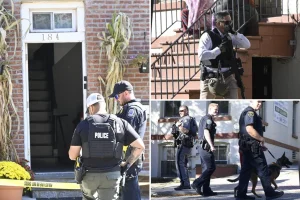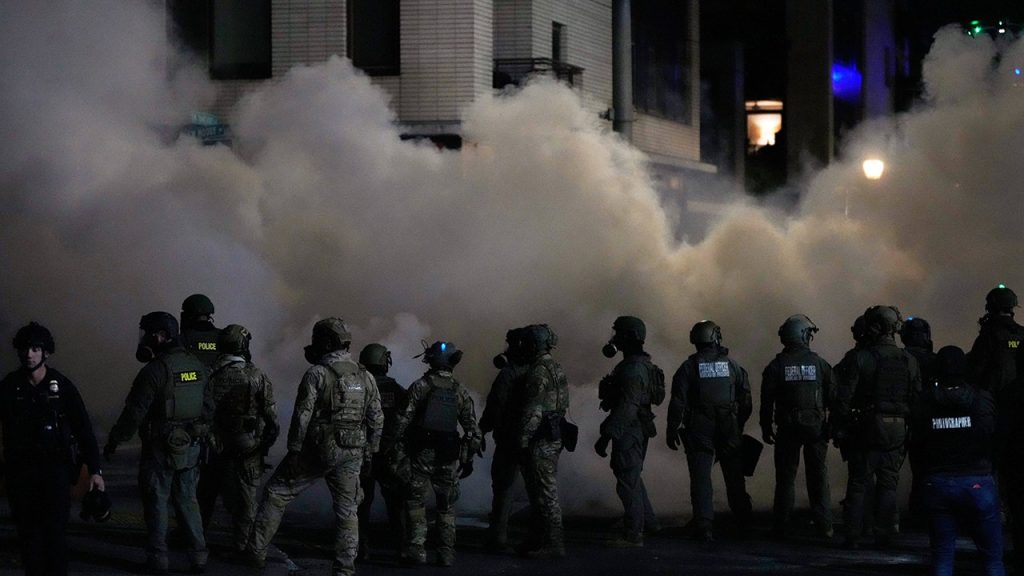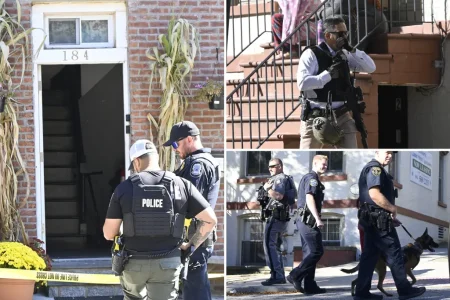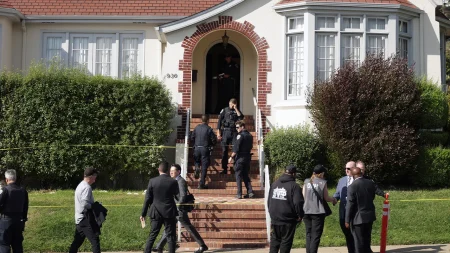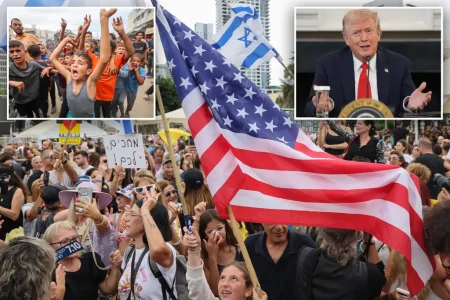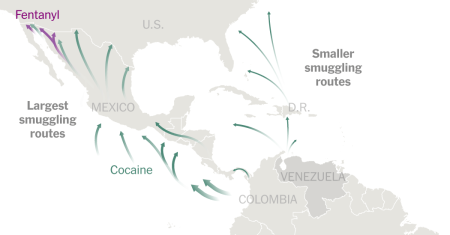Portland Police Union President Open to Federal Support Amid Crime Surge
In a recent development that highlights the ongoing challenges in Portland, Oregon, the president of the city’s police union has expressed openness to receiving federal assistance to address escalating crime rates. As tensions rise between local authorities, federal agencies, and various political factions, the situation underscores the complex interplay of public safety, political divisions, and resource allocation in urban America.
Sgt. Aaron Schmautz, who heads the Portland Police Association, acknowledged the bureau’s critical understaffing issues while crime rates have soared dramatically. “We are still working our way out of a significant burst in our crime profile,” he explained, noting that homicides increased fivefold between 2020 and 2023. Although these numbers have begun to decline slightly, the city experienced nine homicides just last month, signaling that the crisis is far from resolved. Schmautz advocates for a collaborative approach to addressing these challenges, suggesting that if local resources prove insufficient, external help should be welcomed. His position reflects a pragmatic assessment of Portland’s current capabilities rather than a simple political stance.
The situation has drawn attention from former President Donald Trump, who recently announced his intention to direct federal troops to Portland to protect both the city and Immigration and Customs Enforcement (ICE) facilities, which he claims are under siege by Antifa and other groups he characterizes as “domestic terrorists.” This proposed intervention has reignited debates about federal authority in local jurisdictions and the appropriate response to civil unrest. Trump’s statement on Truth Social indicated he would authorize “Full Force, if necessary,” language that has both supporters and critics concerned about potential escalation in a city that has already experienced significant political demonstrations and occasional violence.
Camilla Wamsley, director of Portland’s ICE office, has reported that the federal facility has faced over 100 consecutive nights of protests involving troubling tactics such as bottle rockets striking the building, barricades blocking vehicles, and lasers targeting officers’ eyes. Perhaps most concerning from the federal perspective, Wamsley contends that Portland police have been directed not to assist federal officers during these confrontations, creating a dangerous situation for federal employees. Schmautz expressed empathy for these federal officers, noting, “I am extraordinarily sympathetic to how concerned and afraid federal officers are,” and referenced recent incidents including a shooting at an ICE facility in Dallas and officers being struck by vehicles. He emphasized that regardless of political differences, “no one should be OK with violence directed at anyone.”
The Portland situation illustrates a deeper divide within the city’s governance structure. Schmautz pointed to what he describes as “open, very anti-police rhetoric in our city council meetings,” suggesting that some local leaders have not been supportive of law enforcement efforts. This internal conflict complicates the already challenging task of addressing crime and public safety concerns. The police bureau’s severe understaffing further compounds these difficulties, making it increasingly challenging to respond effectively to the city’s needs without additional support. The situation has created a governance dilemma where ideological positions on policing and public safety appear to conflict with the practical realities of managing crime in a major urban center.
As Portland navigates these challenges, the conversation highlights broader national questions about the role of federal intervention in local matters, appropriate responses to civil unrest, and the balance between addressing legitimate security concerns and respecting local autonomy. While some view federal assistance as necessary support for overwhelmed local resources, others worry about potential overreach or escalation. The Portland Police Association’s openness to cooperation with federal authorities suggests a willingness to prioritize public safety outcomes over political positioning, though the ultimate resolution will likely require careful negotiation between multiple stakeholders with different perspectives on how best to secure the city’s future.

